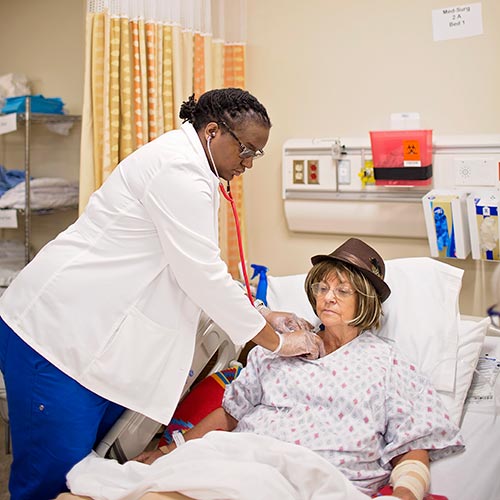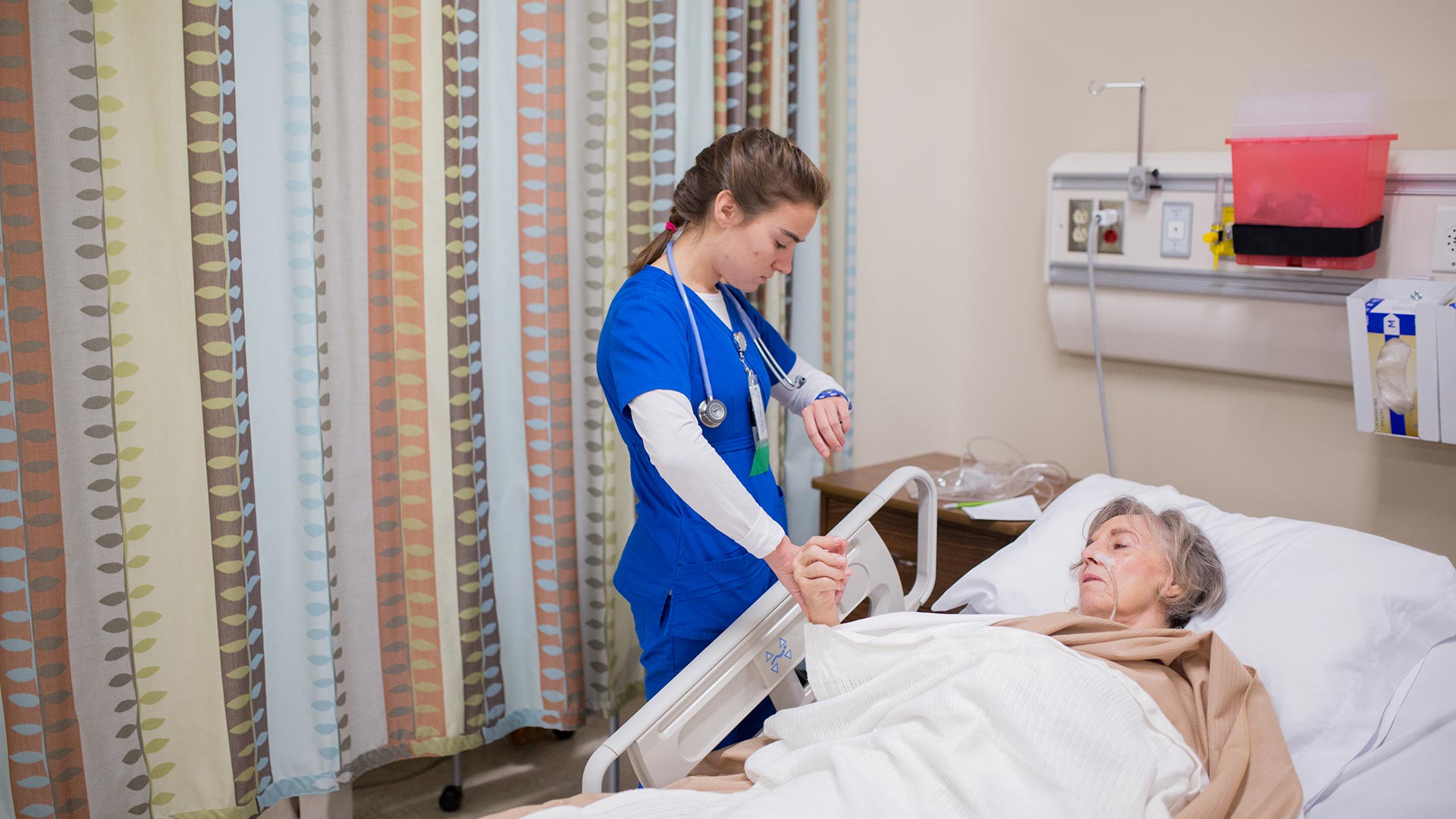Preparing Nurses Who Care
In Moffett & Sanders School of Nursing, learning extends far outside of the classroom. Clinical experiences play a significant role in your educational foundation. These hands-on experiences prepare you to practice in a variety of settings to meet the health care needs of individuals and families across the life span.
We work with some of the best, most reputable clinical agencies in the country, so that your clinical experiences will be both meaningful and relevant to your career goals. Because we are located in Birmingham, we are surrounded by people and organizations on the cutting edge of medicine. You'll have the opportunity to work with skilled preceptors in almost any specialty.

We work with some of the best, most reputable clinical agencies in the country, so that your clinical experiences will be both meaningful and relevant to your career goals.
You'll also work with some of the most advanced simulation technology in the world. Our 22,000 sq. foot Experiential Learning and Simulation Center offers discipline specific and interdisciplinary learning opportunities across the simulation continuum. Students engage at a variety of levels--from lab based learning with low fidelity models, to simulated patient interactions, to complex high fidelity simulations. Its extensive inventory of task trainers, medium fidelity models and high fidelity human patient simulators, creates an optimal learning environment designed to improve technical skills, clinical judgment, decision making, communication and teamwork.
The center utilizes the most sophisticated technology available including digital recording and playback audio visual system that is used for debriefing, evaluation and demonstration. The center also includes an Electronic Health Record system that mirrors the systems found in today's health care settings.
In addition to simulation, you will complete at least two clinical courses every semester. Our students are exposed to clinical rotations including mental health, pediatrics, childbirth, the community, and medical, surgical, and critical care units. We strive to keep our clinical groups smaller than required by the board of nursing. The smaller group size allows our faculty more time to interact with each student to ensure we create competent, professional nurses.
Preceptor and Clinical Associates Orientation

